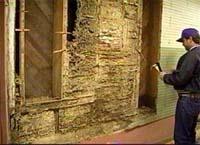Tjurabalan Bug Busters


Wirramanu Aboriginal Corporation (WAC) is seeking a joint venturer in an expanding business arena in which budgets of millions of dollars must be allocated each year. Wirramanu is offering an opportunity for a pest control business (franchise) to gain exclusive rights to service the communities of Mindibungu Kundjat Djaru, Mulan, and Wirramanu. There is also the expanding opportunity to service mine-sites within the region and the township of Halls Creek and outlying areas. The opportunity would involve running the business as a joint venture with the community. The established franchiser would provide a contract to train and service a community owned company that would provide the labour and the market. The community investment can be to provide the market and the CDEP trainees with an option to eventually buy out the franchise at an agreed price. The franchisee would profit share with the Community owned company and adhere to set performance indicators in training and mentoring. The franchiser would bring expertise and know how that provides management and technical expertise. Alternatively the community enterprise could provide part capital.<p>
<h2>Key Points</h2>
<ul>
<li>We are seeking to develop a pest control business (franchise) that has exclusive rights to service the communities of Mindibungu Kundjat Djaru, Mulan, and Wirramanu. There is also the expanding opportunity to service mine-sites within the region and the township of Halls creek and outlying areas.</li>
<li>A number of ownership options are being explored including creating a joint venture with an established franchiser with a contract to train and service with a community owned company that would provide the labour and the market. The community investment can be to provide the market and the CDEP trainees with an option to eventually buy out the franchise at an agreed price. The franchisee would profit share with the Community owned company and adhere to set performance indicators in training and mentoring. The franchiser would bring expertise and know how that provides management and technical expertise. Alternatively the community enterprise could provide part capital.</li>
<li>A substantial financial commitment in excess of over $250k for plant and equipment and franchise would be required.</li>
<li> We seek the option of developing a community owned enterprise that would provide the labour and the market and may provide a suitable workplace to operate the business from. The community investment can be to own the business provide labour and the equipment and infrastructure but would require the services of a manger and mentor, Joint Venture partner that also comes with experience with the industry and technical expertise.</li>
<li>We envisage the business would initially involve 4 Indigenous local employees and a manager for a 2 year period and ongoing support as required.</li>
<li> We are considering two options for the management of this enterprise: </li><li><b>Option 1:</b> To develop this enterprise through the purchase of a leading franchise that would provide the support and training. Our proposal under this option would be to purchase a franchise, and recruit the services of trained franchisees, to assist us with the business mentoring and training. Financial management initially would be managed by the Community office and trainees paid on an hourly basis. Surplus revenue will be reinvested back into the business improving the infrastructure and service.</li><li> <b>Option 2:</b>
To create a separate business entity and stand alone enterprise that operates as a service provider owned by individual community members. This will require substantial capacity building and mentoring. The benefits of this would be giving ownership to individuals.</li>
</ul>
<H2>Background</H2>
Within the Tjurabalen trial site each of the communities currently contracts pest management companies (from Kununurra and Broome) to undertake the control of pests. Considerable expense is involved as each visit involves travel costs. As an example, each visit to Balgo costs approximately $12,000 to do the townsite, being houses and Wirrimanu Aboriginal Corporation (WAC) owned infrastructure. This service has been curtailed in the past twelve months due to financial constraints. None of the houses have been sprayed.<p>
To be realistic, the climate, the household environment and the building structures would require pest management to be done ideally 4 times per year. Most communities are pressed to meet this cost for one or two occasions per year.<p>
Significant health implications exist because of the less than successful health awareness, rubbish collection and indoor/outdoor lifestyle. Housings design, low maintenance and lack of regular cleaning and control puts roaches and mice into plague proportions quickly, especially in the wet season when pest management services struggle to attend the communities.<p>
Apart from housing and Aboriginal owned assets such as general stores workshops and office complexes, there are four schools, clinics and various other agencies placed infrastructure that would use this service.<p>
In Western Australia, licensing requirements under the Controlled Substances Act require that all persons who apply herbicides or pesticides for a fee or reward must be licensed. (Pesticide Safety Section, Health Department of Western Australia. While Training to achieve this licensing is possible through TAFE or a training organisation there is a requirement that on completion of the theory the student must serve time employed by a licensed business like Broome Pest Control, or a franchise like Bug busters. While this makes the proposal of training local community members to form an independent Pest Control Business a little daunting, the use of community employees for pest inspections of community infrastructure is an option already available to Community Housing Organisations.<p>
The training of Environmental Health Workers to support Indigenous Communities has been carried out for more than a decade and a weeklong module of this training already covers the basics and recognition of Pest Control. The people who have been trained as Environmental Health Workers need minimal training to bring them up to a capacity to operate a franchise with management support and supervision.<p>
The township of Halls Creek is experiencing a rapid growth in economic activities due to increased mining and resources activities. Currently Pest Control Independent and franchises service the area from Kununurra and Broome.<p>
<h2>Opportunity</h2>
The opportunity is to develop a pest management service that services all of the communities. Communities also need to be visited regularly to keep pest management under control.<p>
A partnership with a pest management business, funded initially through Municipal Support Program (MSP) or Housing and Works and ATSIS, set up in Halls Creek focussing on community work may deliver more strategic outcomes. Training and development of employees to eventually take over the role of service provider could be part of the business plan. If controlled via a single community MSP for the region, or Housing and Works on a regional basis, they to would receive better coverage for the money they currently spend in the pest management programmes.<p>
<h2>Location</h2>
The franchise could either be regionally based in Halls Creek to open up market potential or at one of the communities that provides the service to the others? The Halls Creek option may secure assets, though business in Halls Creek may reduce the service delivery to the communities, which would defeat the purpose.<p>
<h2>Immediate Action is Necessary</h2>
The need for continuous pest management control is now. Time delay means communities will have to pay another round of costs for a service they can undertake themselves and create jobs.<p>
Who to contact to develop this proposal:<p>
Noel Mason CEO Wirramanu Aboriginal Corporation (WAC)<p>
Contact balgoceo@bigpond.com 08 91 688996
<p>
